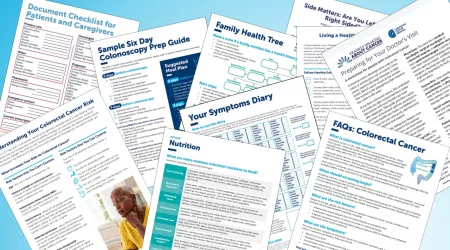
Study identifies early indicators of young-onset CRC

A study conducted by researchers at Washington University School of Medicine has unveiled four crucial signs and symptoms that serve as early indicators of an increased risk of young-onset colorectal cancer. These red flags could aid in the detection and diagnosis of colorectal cancer among younger adults, as the incidence of this disease in young people has nearly doubled in recent years.
Examining health insurance data from over 5,000 patients with young-onset colorectal cancer, the following symptoms were marked as warning signs that signify an elevated risk among individuals under 50:
- Iron deficiency anemia
- Rectal bleeding
- Abdominal pain
- Diarrhea
The study revealed that having a single symptom nearly doubled the risk, while two symptoms increased the risk by over 3.5 times, and three or more symptoms escalated the risk by more than 6.5 times.
Published in the Journal of the National Cancer Institute on May 4, the study emphasizes the importance of younger adults recognizing and acting upon these significant signs and symptoms.
“Colorectal cancer is not simply a disease affecting older people; we want younger adults to be aware of and act on these potentially very telling signs and symptoms — particularly because people under 50 are considered to be at low risk, and they don’t receive routine colorectal cancer screening,” said senior investigator Yin Cao, ScD, an associate professor of surgery in the Public Health Sciences Division.
Dr. Cao highlighted rectal bleeding and iron deficiency anemia as particularly critical symptoms that warrant timely endoscopy and follow-up.
“It’s also crucial to spread awareness among primary care doctors, gastroenterologists, and emergency medicine doctors,” Cao said. “To date, many early-onset colorectal cancers are detected in emergency rooms, and there often are significant diagnostic delays with this cancer.”
Notably, individuals born in 1990 face double the risk of colon cancer and four times the risk of rectal cancer compared to young adults born in 1950. This alarming trend has prompted organizations such as the National Cancer Institute, American Cancer Society, and American Gastroenterological Association, as well as the Colorectal Cancer Alliance, to prioritize research into identifying risk factors and improving early detection.
In 2021, the U.S. Preventive Services Task Force lowered the recommended age for colorectal cancer screening from 50 to 45. The change made 20 million additional Americans eligible for screening.
Dr. Cao also heads a research group dedicated to identifying risk factors and molecular variations in young-onset colorectal cancer. Her team was among the first to report the potential contribution of factors, such as obesity, metabolic syndrome, diabetes, and sugar-sweetened beverages to the rising incidence of this disease.
While the death rate from colorectal cancer has been decreasing among older adults due to regular colonoscopies and enhanced treatment, there is a concerning rise in younger individuals being diagnosed with advanced-stage colorectal cancer and succumbing to the disease. This shift underscores the urgent need to recognize symptoms at the earliest stage possible.
“It usually takes about three months to get a diagnosis from the time a person first goes to the doctor with one or more of the red-flag signs and symptoms we’ve identified,” said Cassandra D. L. Fritz, MD, an assistant professor of medicine in the Division of Gastroenterology, and first author of this study. “But in this analysis, we found that some young adults had symptoms for up to two years prior to their diagnoses. That may be part of the reason many of these younger patients had more advanced disease at the time of diagnosis than what we normally see in older people who get screened regularly.”
Dr. Cao emphasized the importance of promptly recognizing these red flag signs and symptoms and conducting a diagnostic work-up as soon as possible, as most young-onset colorectal cancer cases are diagnosed after symptom presentation. Early diagnosis can reduce the need for aggressive treatment, improve patients’ quality of life, and enhance survival rates.
For further information, please review the study.
Top resources

Colorectal cancer resources for learning and sharing
Whether personally impacted by colorectal cancer (CRC), supporting a loved one, or dedicated to educating and empowering others, these downloadable and printable resources can help.

Don Shippey: from stage IV to six years cancer-free after receiving HAI pump
Don Shippey was 55 years old in 2016 when he decided he’d been putting off his colonoscopy long enough.

Haleema Burton: Why timely screening matters even without symptoms
It’s a lot easier to prevent colorectal cancer than it is to cure it.





